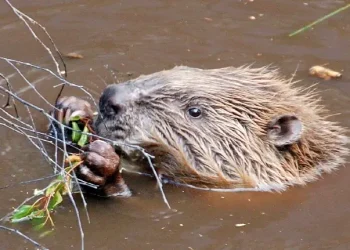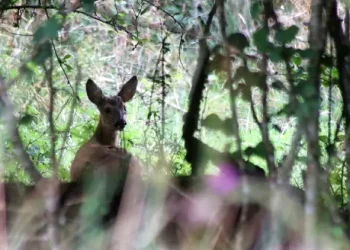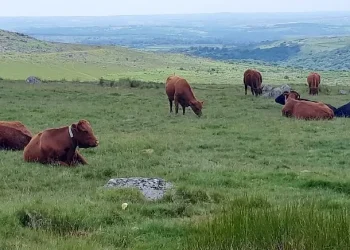Hundreds of trees have been planted at Westmorland General Hospital in Cumbria to increase biodiversity, support wildlife, and improve patient and staff well-being.
Led by the University Hospitals of Morecambe Bay NHS Foundation Trust during National Tree Planting Week, this initiative highlights the link between green spaces and health benefits.
A Collaborative Effort for Health and Nature
During National Tree Planting Week (23 November – 1 December 2024), staff from the University Hospitals of Morecambe Bay NHS Foundation Trust, in partnership with Natural England and the Well Communities, planted 250 trees across the hospital grounds.
This project, part of the NHS Forest initiative, is designed to enhance biodiversity, promote green therapy, and contribute to NHS net zero targets.
The tree species include hawthorn, crab apple, rowan, blackthorn, hazel, and bird cherry, selected for their ecological benefits. These trees will provide early nectar for insects in spring and berries for wildlife during autumn, creating vital habitats for creatures such as voles, badgers, and waxwings.
Greening Hospital Grounds for Wildlife and Recovery
Supporting Biodiversity
New trees and wildflower areas will transform the hospital grounds into a thriving green space. Yellow rattle seeds are being sown alongside earlier wildflower plantings, and gardeners are leaving these areas uncut during summer to foster growth.
In addition, bird and bat boxes have been installed, and a small hedgehog house was built for a resident hedgehog, Henry.
Project Highlights |
Details |
|---|---|
| Total Trees Planted | 250 |
| Tree Species | Hawthorn, Crab Apple, Rowan, etc. |
| Additional Biodiversity Features | Bird and bat boxes, hedgehog house, wildflower seeds |
| Key Collaborators | Natural England, NHS Forest, Well Communities |
These efforts aim to address the UK’s ranking as one of the most nature-depleted countries.
Consequently, by integrating biodiversity into urban hospital environments, the project not only provides an opportunity for patients, visitors and staff to connect with nature but also supports recovery and well-being.
Promoting Health Through Green Spaces
Research has shown that access to nature, such as listening to birdsong or watching wildlife, significantly improves mental health. The hospital’s tree planting project is an example of how integrating green therapy into healthcare settings can boost recovery outcomes for patients and improve staff morale.
“This work forms part of the trust’s green plans,” said Dave Sanderson, Director of Estates and Facilities at University Hospitals of Morecambe Bay NHS Foundation Trust.
“It will leave a lasting legacy for our trust, providing an environment that enhances patient recovery while encouraging wildlife to thrive.”
A Model for Sustainability and Community Involvement
The project also contributes to Natural England’s broader nature recovery plans across Cumbria. By partnering with local organizations such as the Arnside and Silverdale National Landscape and People Plant Trees CIC, the initiative reflects a community-wide commitment to restoring habitats and promoting sustainable practices.
Benefits:
- Enhances biodiversity with native species and wildlife-friendly features.
- Promotes health through green therapy and natural recovery settings.
- Supports NHS net zero goals by storing carbon and reducing environmental impact.
Future Plans and Objectives
Plans are underway for further projects at Westmorland General Hospital to build on this momentum. These efforts aim to bring more staff and visitors into the natural environment while continuing to increase biodiversity across the hospital grounds.
This initiative underscores the importance of integrating nature into everyday spaces. By doing so, the hospital demonstrates how health care, environmental sustainability, and community collaboration can come together to create meaningful and lasting change.
Want to learn more about biodiversity projects or green therapy? Explore NHS Forest initiatives and find ways to bring nature into your community.
Sources: THX News & Natural England.









